Why The American Dream No Longer Includes Home Ownership For Many Millennials
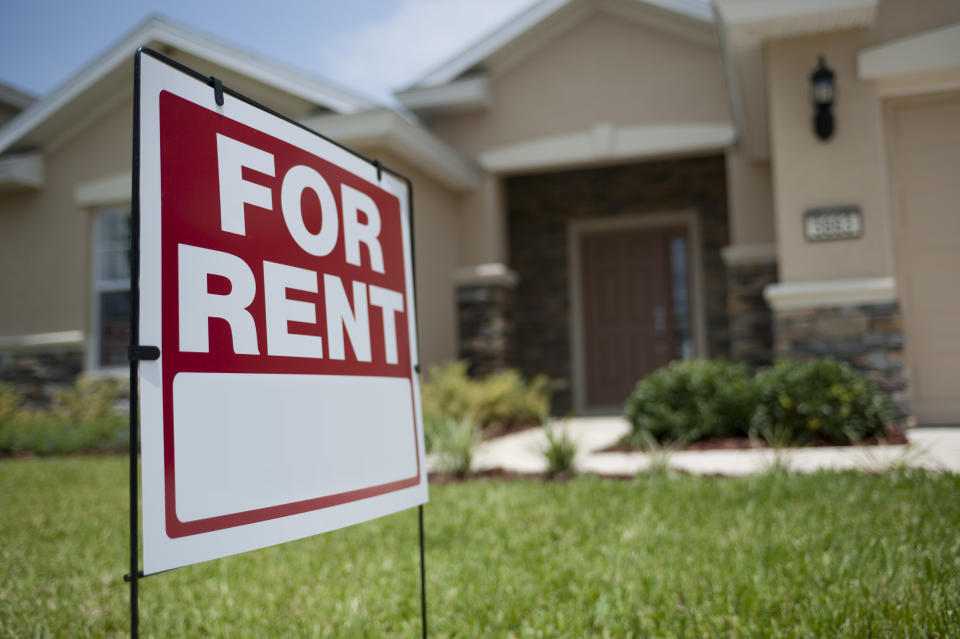
Before Karyn Chylewski and her husband got married, they spent several adventurous years together traveling and sharing new experiences. Once the Gen-Xers tied the knot, buying a house seemed like the obvious next step.
“We took a swing at the old American Dream,” she said. “It was super exciting at first … it was 2005, and there was such a buzz in the air around real estate.”
So the Chylewskis put their savings toward a down payment on a townhome in the suburbs of Chicago.
The Dream Becomes A Nightmare
Unfortunately, Chylewski’s husband lost his job in the wake of the 2008 recession. The job market in Illinois was looking bleak, so they were forced to look out of state for work. And in a fortunate turn of events, he was offered a position in California. The only problem? The townhouse was anchoring them in place.
The home had lost half its value. At that point, Chylewski’s husband was facing the grim reality that he might not be able to take that job because they couldn’t sell the house for what they needed. “I felt handcuffed,” said Chylewski.
Eventually, they were able to rid themselves of the property in a short sale, which meant they lost thousands of dollars and their credit took a hit.
“We’re not the two and a half kids, white picket fence type of people,” said Chylewski. “But we kind of got sucked into it at that time … it turned into a horrible nightmare.”
Bucking The Trend
The Chylewskis’ story was all too common during the Great Recession. Americans had been fed the idea that home ownership was the only way to truly make it, and some of them ended up losing their life savings.
“The dream of home ownership was something that came after World War II, when everyone came back and they built all these houses,” explained Brian Face, a fee-only financial planner and owner of Face2Face Financial Planning. Homes came to represent personal success and security, an ideal Face said real estate and mortgage agents perpetuated.
“It’s good for the economy to buy houses, but that doesn’t mean it’s actually good for the person that buys it,” Face said.
Some millennials, whose formative years took place during the Great Recession, are questioning that ideal.
Javier Gutierrez, a 26-year-old renter in Austin, Texas, and a blogger at Dreamer Money, graduated from college with $15,000 in student loans. His wife also had a $19,000 car loan. “The last thing we wanted to do was to become more indebted,” he said.
“We decided to strictly focus on paying off our debt, and renting really helped us out,” Gutierrez said.
And they’re not the only ones. According to a survey by the National Association of Realtors, a whopping 83 percent of millennials ages 22-35 who have delayed home ownership said they did so because of burdensome student loans, which have reached an unprecedented $1.5 trillion collectively.
Further, a study by the Pew Research Center that examined Census Bureau housing data found that today, more U.S. households are renting than at any point in the last 50 years.
Clearly, the world has changed. But young adults aren’t just renting because they can’t buy ― they’re choosing to rent because it affords them better personal and financial opportunities.
Why Renting Often Makes More Sense
There are no taxes, interest or maintenance costs.
When comparing renting versus buying, it’s important to look at the whole picture, said Face. You have to consider not only the mortgage payment, but the added costs of property taxes, home insurance, HOA fees and ongoing maintenance that would otherwise be covered by your landlord.
“Personally, I just had $2,800 in damage to my roof,” said Face. “They told me I might need a new roof in a couple of years. Well, that’s about $15,000. How many people who are 30 years old can pay $15,000?”
It’s easier to pay off debt.
For renters who are saddled with student loans and other types of debt, it doesn’t make sense to tack on a mortgage, even if they can afford it.
Gutierrez credits renting with saving him those additional home costs that he put toward aggressively paying down debt instead. “We paid off my student loans in about 17 months,” he said. “Five months later, the car was paid off.”
Renting doesn’t tie you down.
According to U.S. Bureau of Labor Statistics, younger baby boomers (born 1957-1965) held an average of 11.9 jobs between ages 18 and 50. There’s evidence millennials don’t job-hop more than Gen Xers did when they were the same age, but a 2016 Gallup report found that 60 percent of millennials were open to a different job opportunity ― 15 percentage points more than other generational cohorts.
“I am in awe of [millennials’] mobility and flexibility,” said Amy Irvine, a certified financial planner and owner of Irvine Wealth Planning Strategies. “And home ownership doesn’t allow for that,” she said.
For instance, if you live in New York and have the opportunity to take a job in Seattle that pays 20 percent more, owning a home could be a roadblock.
Plus, more employers are hiring remote workers, giving employees the ability to work from anywhere in the world. In fact, 43 percent of Americans work remotely at least some of the time, according to a Gallup report. “They’re hopping around, living in different states just to explore ― and you just can’t do that with home ownership,” Irvine said.
The stock market sometimes can offer better returns than homeownership.
A longstanding belief is that your home is an investment because it increases in value over time. But what if, rather than making payments toward equity in your home, you put that money in the stock market?
“We typically see values of houses increasing at 2 to 3 percent [per year], on average,” said Irvine. “If you average out what just an S&P stock fund equates to over a 10 or 15 year period, you’ve got almost double that in returns.”
Irvine noted that you do have to pay taxes for capital gains on those investments, but it can still turn out to be more lucrative.
When renting, your assets stay liquid.
Another problem with tying up your wealth in a piece of property is that you can’t access the money if you need it right away. For instance, said Irvine, what do you do if you lose your job? With a mortgage, you can’t cut costs by simply relocating to a cheaper apartment.
“That’s the thing about real estate,” said Face. “It’s as liquid as there is someone to buy it. You could probably sell it tomorrow, but it wouldn’t be for a reasonable price.”
There are fewer tax incentives to buy these days.
“Most people aren’t going to get a deduction for their mortgage interest anymore,” said Face. That’s because the latest tax reform bill raised the standard deduction from $6,350 to $12,000 for single filers and from $12,700 to $24,000 for married couples filing jointly. You’d only take a deduction on your mortgage interest if the total of your itemized deductions is more than your standard deduction, he explained.
So if you’re married, it’s going to be tough to claim over $24,000 in itemizations unless you live in a high-value real estate market. Even then, the new tax bill lowered the ceiling on the mortgage interest deduction. That means you can only deduct interest on up to $750,000 in mortgage debt rather than on $1,000,000. The bill also capped property taxes at $10,000.
Our values have changed.
Financial considerations aside, younger Americans are simply living different lives. Just as millennials are less likely to work for the same company for 40 years and retire with a pension, they’re not buying homes like past generations. And that’s OK.
“Our generation is more about experiences,” said Face, who is a millennial himself. Some millennials would rather have the freedom of renting than a piece of property they can barely afford.
The bottom line is you have to give up something in order to be a homeowner, Face said, whether that’s traveling or saving money in a retirement account. Some young adults today are choosing not to make that sacrifice in the name of homeownership.
Should Owning Be Off The Table?
As with everything in personal finance, there’s no one-size-fits-all answer to the question of whether renting or buying is better. Just be sure that whichever you choose, it’s for the right reasons.
And instead of believing you somehow failed because you don’t own a home, Face recommended thinking about it in a different way. “You have other priorities that are more important to you,” he said. “Don’t worry about what everybody else thinks.”
When it comes to homeownership, remember, “It’s not a golden ticket to living happily ever after,” said Chylewski.
CORRECTION: A previous version of this story indicated that a survey said 83 percent of millennials ages 22-35 have delayed home ownership because of student loans. In fact, that survey said that of those millennials who delayed home ownership, 83 percent did so because of the loans.
Related Coverage
How To Negotiate A Discount On Your Rent
8 Financial Rules You Should Break, According To Experts
Boomers Have Millennials To Thank For The Amazing Perk Of Telecommuting
Also on HuffPost

Trim your entertainment subscriptions ruthlessly.
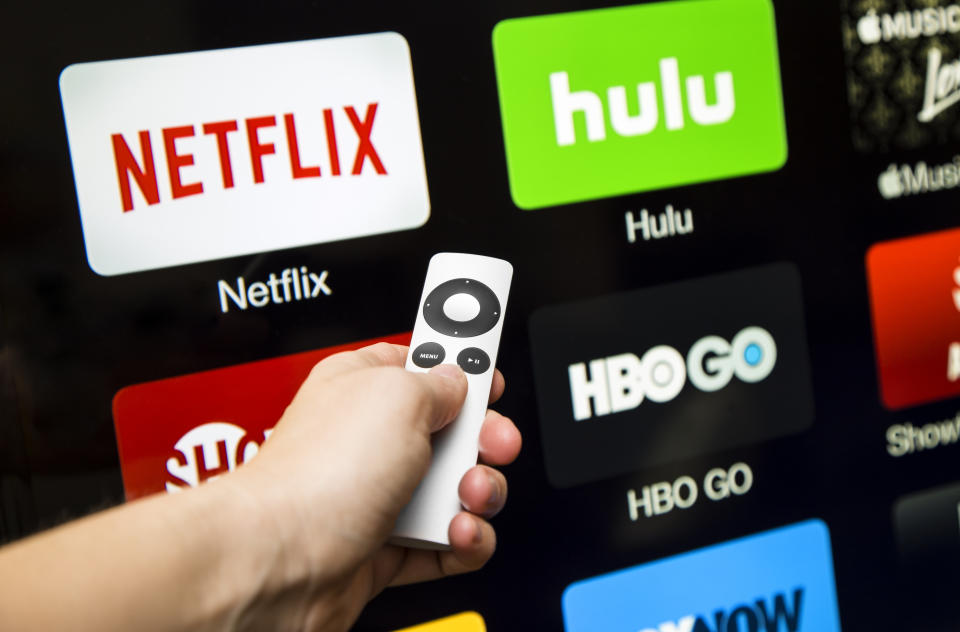
You’ll save at least $100 to $150 a year for each streaming service you drop.
Cancel stuff after the free trial period ends.

Spotify Premium will give you a month free ― and then automatically start billing you $9.99 a month. Amazon Prime gives you a free month ― before charging your credit card annually.
Mark the date the free trial ends and set a calendar reminder for yourself to cancel in time.
Cut subscriptions that are charged to your credit card.

To help you keep track of all the automatic wallet drainers, check out the app Trim. Once you sign up and connect your bank account and phone number, it analyzes your transaction history for recurring payments. Every time your account is hit for such a payment, the app sends you a text to remind you where your money is going.
Use digital coupons and price-trackers.

Honey, for example, is a free web browser add-on that goes through your cart when you check out online to make sure any possible coupons or discount codes have been applied. In 2017, Honey saved members over $325 million, a company spokesman told HuffPost.
Another service worth checking out is CamelCamelCamel, which keeps tabs specifically on the prices of Amazon products so you know if you’re paying high and might want to wait for the price to drop.
Work from home at least one day a week.

Think about it: When you don’t commute, you use less gas and don’t have to pay for parking or other transportation services. You can even cut back on day care for kids or pets and you might bank a tidy $660 annually just by working in your sweats once a week.
Here are five tips for negotiating a work-from-home schedule with your boss.
Drive less.

Those who decreased their total annual miles from 10,000 to 5,000 saved an average of 7 percent on their premiums, according to a 2015 study by Quadrant Information Services.
Drive more.

Stop paying others to drive things to you.

Why? Because UberEats, for example, charges $5 per delivery. If you order lunch delivered twice a week, that’s $10 a week or more than $500 a year, not including tips ― money you can put in the bank instead.
If you drive a clunker, insure a clunker.
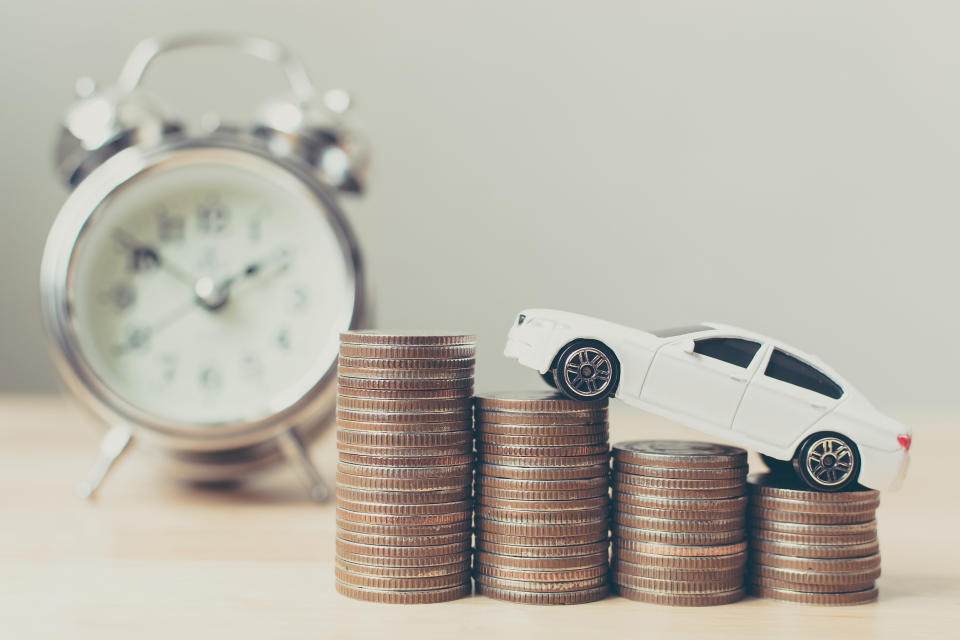
Eliminating the comprehensive and collision coverage could save you between $375 and $1,500 a year ― which could help you begin building that decent-car fund you really need.
Direct deposit your pay somewhere it’s hard to touch.
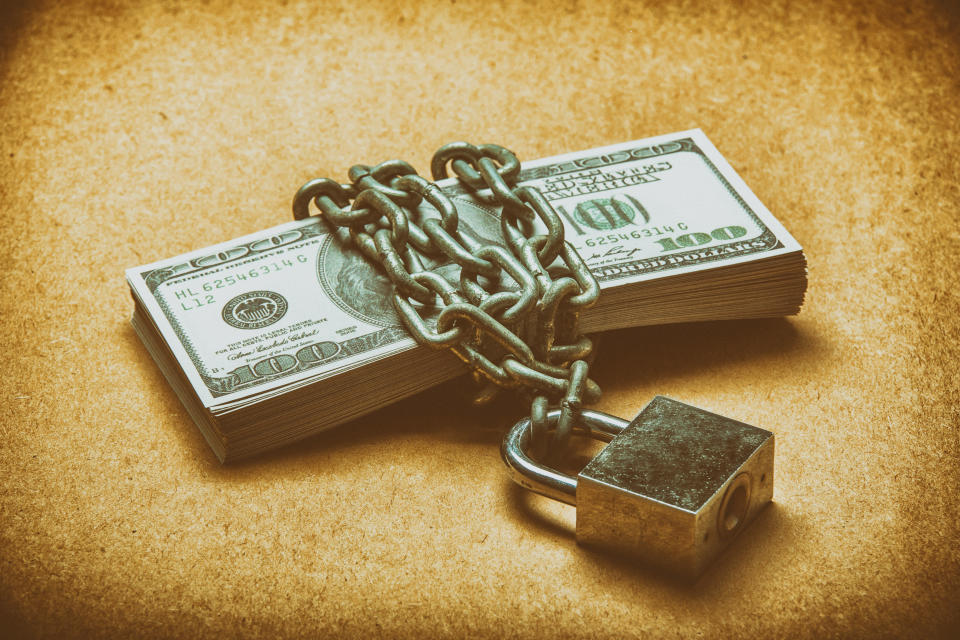
The point is that sometimes we need a stern authority and strict rules to back up our wavering self-discipline. If your employer offers multiple direct deposit options, have a certain amount from each paycheck sent directly into your savings account. If your employer offers a 401(k) plan, participate! You won’t miss what you never see.
Liberally apply the 30-day rule to your purchasing.

The trick when you see something you want is to wait 30 days to determine if you still want it. Finder’s free Icebox Chrome extension encourages you to rein in your buying impulse up to 30 days by replacing the “buy” button on websites with a “put it on ice” button. It keeps a list of items and lets you know when the “cooling period” is up, at which point maybe the urge to purchase has passed.
Renegotiate your rent.
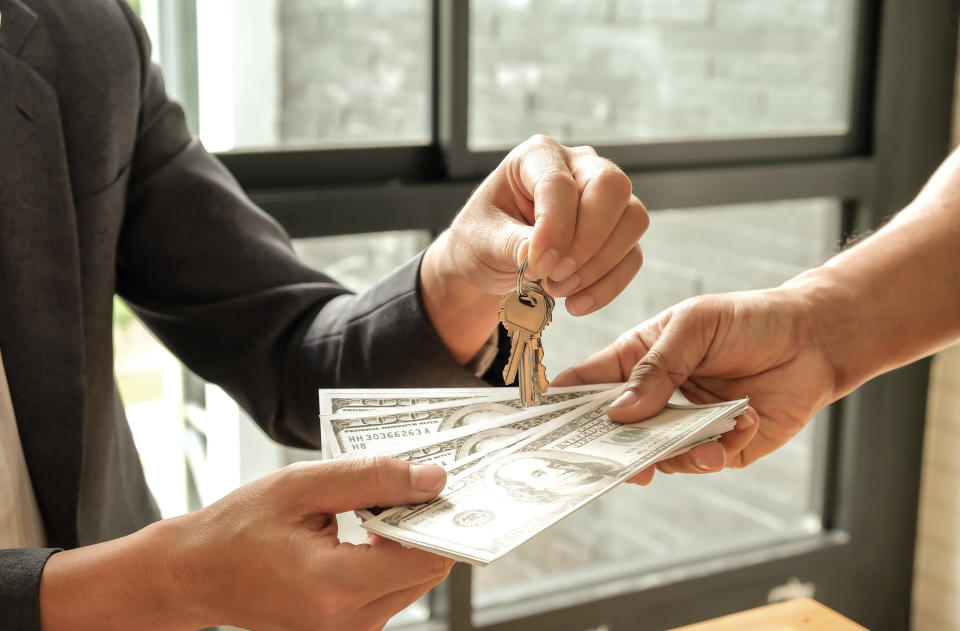
Sell before you give away.

Give away before you toss.

Stop wasting money on the lottery.

Drink the office coffee.

One easy way to make sure your effort counts is to use the Tip Yourself app to put a few dollars away every time you opt for the free java.
Don’t overbuy online services.

For example, consider all those sites designed to help you check out the new prospects you meet on online dating sites. Most sell their services “in bulk.”
If you are constantly vetting people, maybe the longer plans make sense. But if you’re using these services to check out dating prospects, will you still be looking into the backgrounds of a lot of strangers in three months?
Don’t drink and shop.

Love HuffPost? Become a founding member of HuffPost Plus today.
This article originally appeared on HuffPost.

 Yahoo Finance
Yahoo Finance